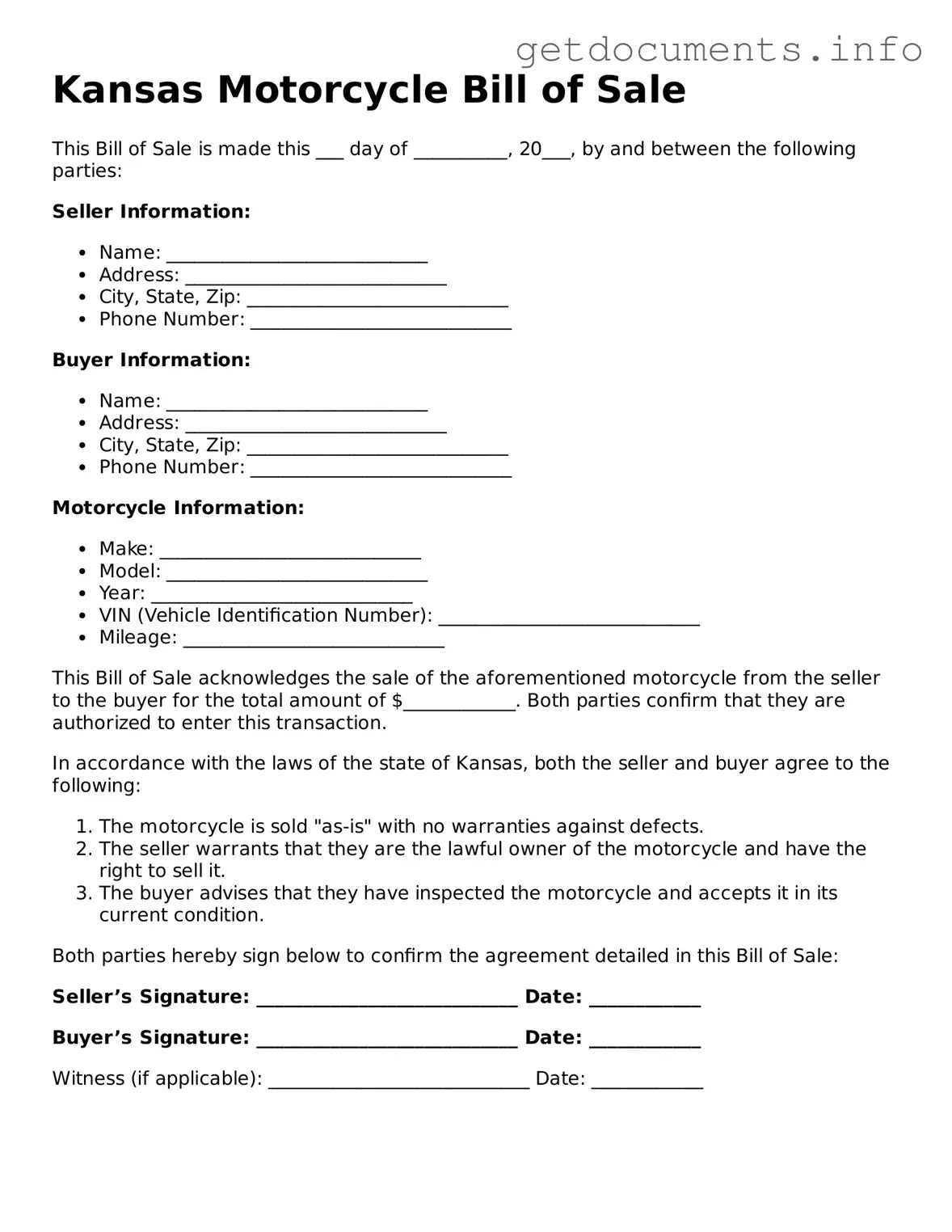Free Motorcycle Bill of Sale Template for Kansas
The Kansas Motorcycle Bill of Sale form is a legal document that records the sale and transfer of ownership of a motorcycle in the state of Kansas. This form serves as proof of purchase and includes essential details about the motorcycle and the buyer and seller. Completing this form is a crucial step in ensuring a smooth transaction, so be sure to fill it out by clicking the button below.
Access Motorcycle Bill of Sale Editor

Free Motorcycle Bill of Sale Template for Kansas
Access Motorcycle Bill of Sale Editor
Got places to be? Complete the form fast
Fill out Motorcycle Bill of Sale online and avoid printing or scanning.
Access Motorcycle Bill of Sale Editor
or
⇩ PDF File
